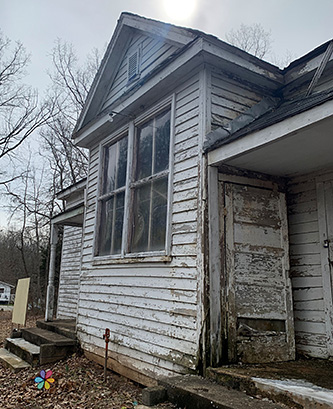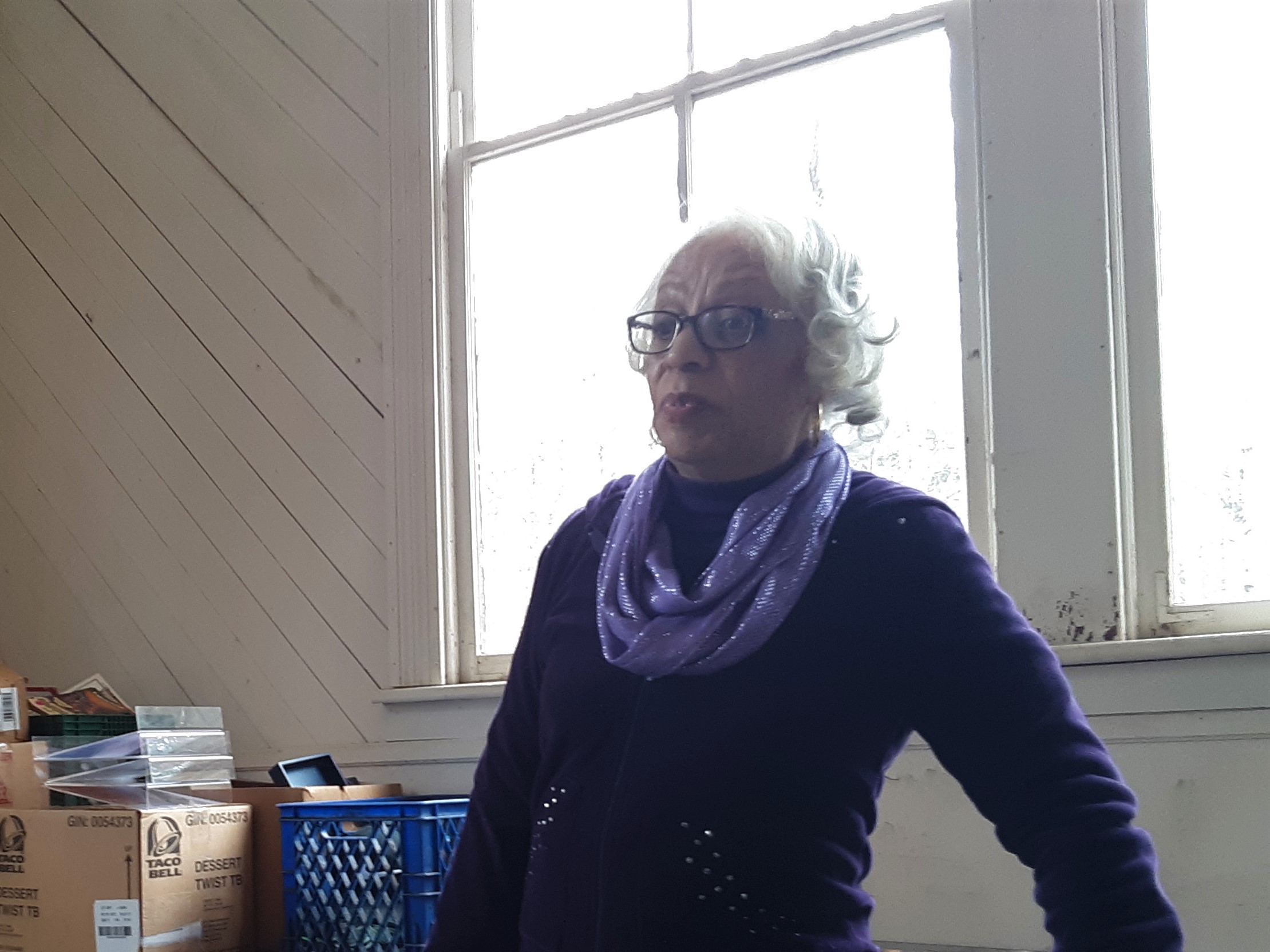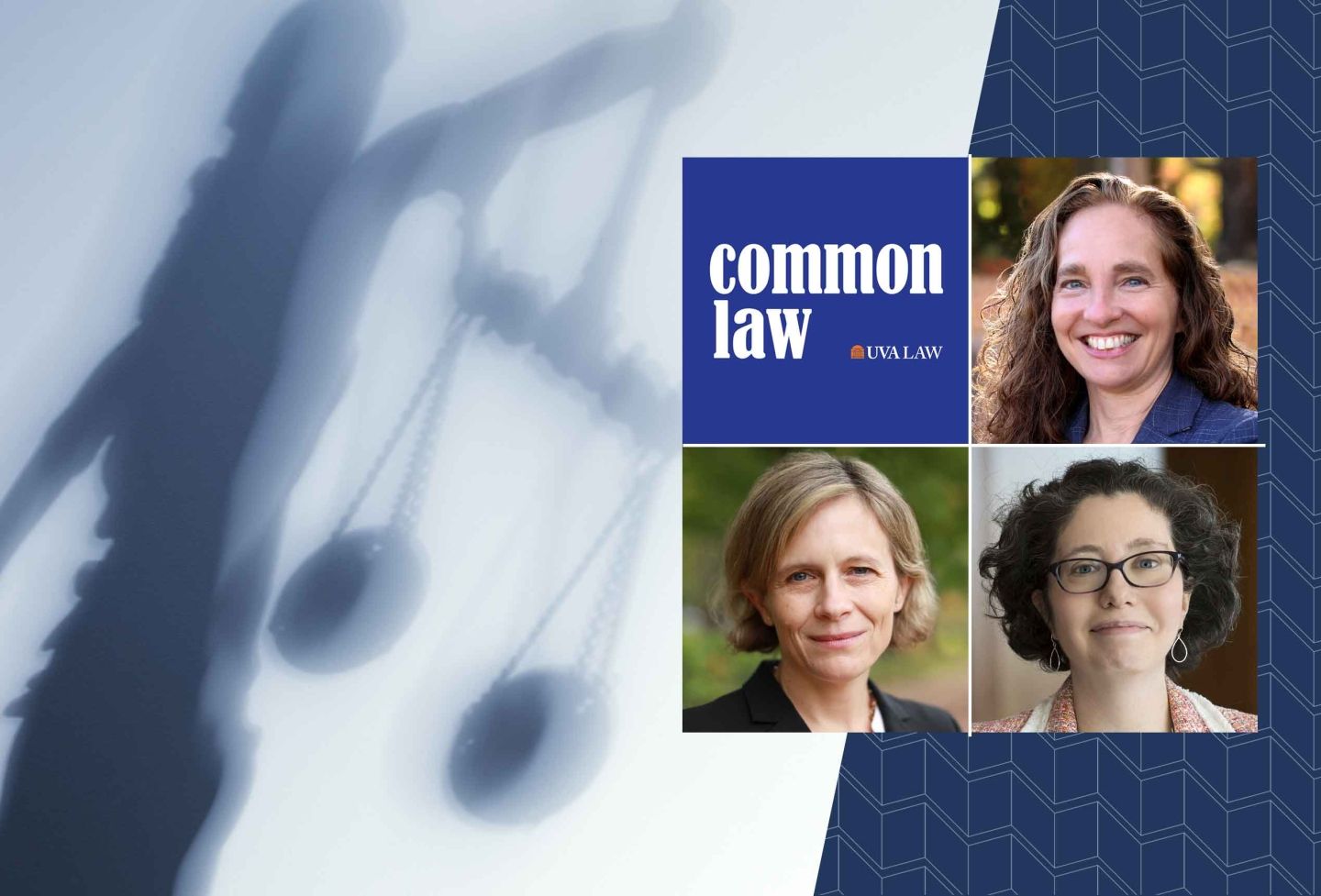The Environmental and Regulatory Law Clinic at the University of Virginia School of Law has joined an effort to protect a historic African American schoolhouse and surrounding property, which community members say are threatened by a proposed landfill.
Pine Grove Elementary School in Cumberland County, Virginia, was built in 1917 as one of thousands of Rosenwald Schools constructed in the South to educate black children in the Jim Crow era. The Virginia Department of Environmental Quality and other agencies are currently reviewing permit applications for the proposed Green Ridge Recycling and Disposal Facility, and considering the impact that the landfill would have on environmental and historic resources in the area.
The Green Ridge site encompasses 1,200 acres. If approved, it would take in between 3,500 and 5,000 tons of waste per day according to estimates from County Waste of Virginia, which seeks to operate the facility.
“The history here is important. It shouldn’t be filed away next to a landfill,” said Professor Cale Jaffe ’01, the clinic’s director. “I accepted the case into the clinic because I wanted to give students the chance to work directly with a community and make sure that the community’s stories were elevated and cherished as an incredible monument to strength in the face of segregation, Jim Crow persecution and discrimination.”

The clinic is assisting the AMMD Pine Grove Project, founded to preserve the schoolhouse and its history and spearheaded by and named for families with deep ties to the region. The school recently attained designations with federal and state historic registers, and other preservation groups have joined the effort. The clinic has agreed to help the project navigate the administrative processes for participating in environmental permitting reviews.
Jaffe said the proposal will likely be open to more state regulatory scrutiny in the future. Additionally, impacts to water resources protected by federal law would require review by the U.S. Army Corps of Engineers, “which we think is necessary here,” he said.
Jessie Conover ’20 and Jake Wiener ’20 were among a group of clinic students who traveled to Cumberland County to meet with formers pupils of the Pine Grove School and the leaders of the AMMD Pine Grove Project. Conover and Wiener have taken the lead in drafting comment letters on behalf of the AMMD Pine Grove Project to federal and state regulators, and assisting with Freedom of Information Act requests.
Wiener said that, before this project, he hadn’t understood just how personally meaningful legal work could be.
“I’ve also been deeply inspired by the strength and organization of the Pine Grove community,” he said. “They are their own best advocates.”
Conover said African American sites are underrepresented in historic registers, and she credits the Pine Grove community with getting the schoolhouse recognized and brought to regulators’ attention.
“This case has so many dimensions: environmental law, regulatory law, historic preservation law and most importantly, environmental justice,” Conover said. “Race is hugely important here, and it is an undeniable part of whose history we preserve — and whose we don’t.”
A letter from the clinic, filed this month with the Virginia Department of Historic Resources, explains just what is at stake.

“The strength of the Pine Grove Community is evident in the extraordinary and successful effort the community made to provide for a quality education. … Although inspired in part by the Rosenwald Fund, Pine Grove School was built and maintained on generations of community investment. … It is critically important for DHR to take into account the whole resource — not just the physical structure of the Pine Grove School — but the historic community of which it was the center.”
Muriel Branch, who attended Pine Grove as a child, is chairwoman of AMMD Pine Grove Project. After reviewing the clinic’s letter, she said, “I wept out of gratitude and out of a sense that finally someone seemed to be peering into my soul.”
Branch added, “So many years of hurt and desperation to be heard, to be seen. The letter is well researched, and poignant, and should give DHR reason to pump their brakes until further studies are done.”
Founded in 1819, the University of Virginia School of Law is the second-oldest continuously operating law school in the nation. Consistently ranked among the top law schools, Virginia is a world-renowned training ground for distinguished lawyers and public servants, instilling in them a commitment to leadership, integrity and community service.


